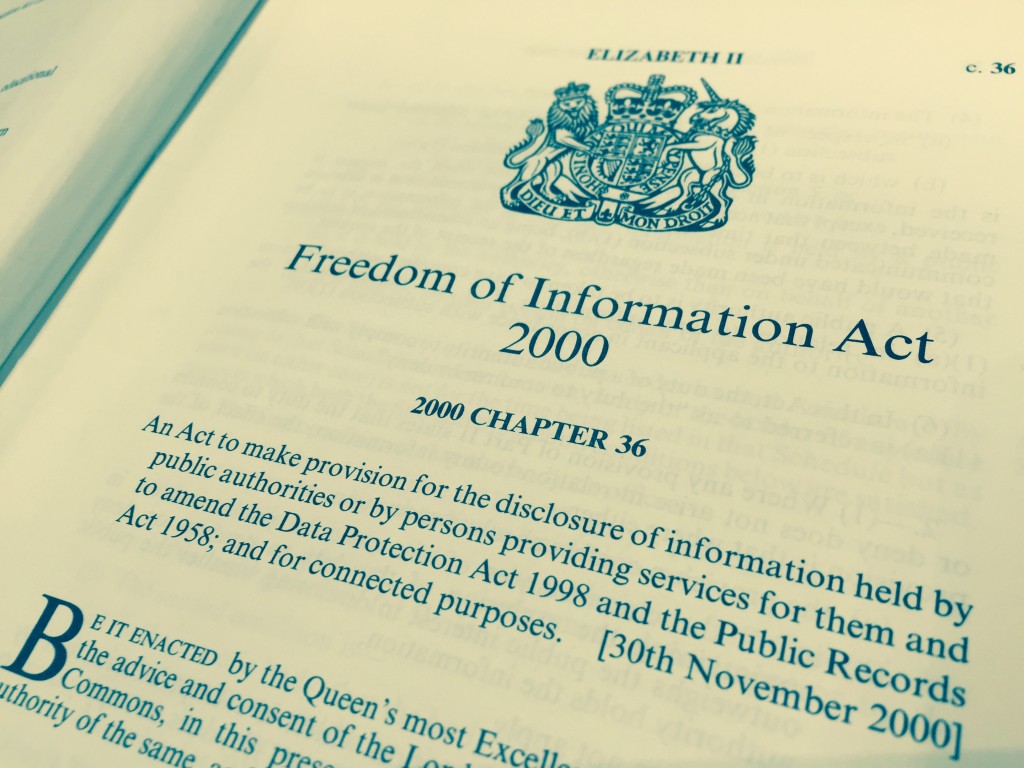I’m running a session later today at the Campaign Bootcamp Communities of Resistance conference on using Freedom of Information (FoI) as a campaigning tool.
This post is a summary of the session, with links to a few useful resources. The slides from the session are below and can be viewed here.
While Whitehall has grown more hostile to FoI requests – Tony Blair famously said it was one of the biggest mistakes he had from his time in government – if used effectively it can still be a useful tool for campaigners.
As a reminder, Freedom of Information isn’t a tool you need to be a legal expert to use, it’s designed to be used to everyone, which means;
- You can use it to ask for any recorded information held by or on behalf of any authority.
- Applies to all public authorities – national and local. The list of who you can make a request to is really comprehensive.
- You need to make a request in writing, but sites like https://www.whatdotheyknow.com/ can really help.
- Requests are free to make – but there are limits on how much time any authority has to spend in its response to you.
- You don’t have to explain why you’re making a request.
- You should get an answer in 20 days – but the reality is that the time scale is longer.
- You can specify the format you want to get the information in.
- There are some grounds when your request might be turned down.
There is lots more on how to make requests in this guide from the Campaign for Freedom of Information.
And looking around there are lots of ways that campaigning organisations are using Freedom of Information. Here is a helpful typology of approaches, although I’m sure I’m missing some – so please do add in the comments below;
| Opposition Research | Find out what your opponent is doing – it could be to identify who they’re meeting with, access records of relevant meetings or documents. See this from Greenpeace. |
| Policy Report | Collect information from a range of targets/institutions to create a data set that you can use in a policy report, for example see here. |
| Media Story | Create a headline figure for your press release to support your campaign aims – can also use a refusal to provide a FoI to make a media story. See this from my colleagues at Save the Children. |
| Fact Checker | Build evidence to challenge or refute arguments that are regularly used against your campaign – for example here on a story on low traffic neighbourhoods. |
| Campaign Evaluation | Understand how your target has responded to your campaign – to identify how many actions received, or how they decided to respond to your requests. |
| Intrigue | To get answers to questions that intrigue you – who knows what you might discover. |
If you’re looking to make a request I’d strongly recommend using whatdotheyknow.com, but here are some useful tips for making your request.
- Check first – if the information has been previously released under Freedom of Information publication scheme.
- Be concise – remember you can be turned down if you ask for too much information.
- Be clear – don’t use acronyms or jargon – the official responding might not be an expert.
- Be focused – provide details of date ranges or specific departments/individuals you’re interested in.
Finally, if you’re looking for more resources I’d recommend;
